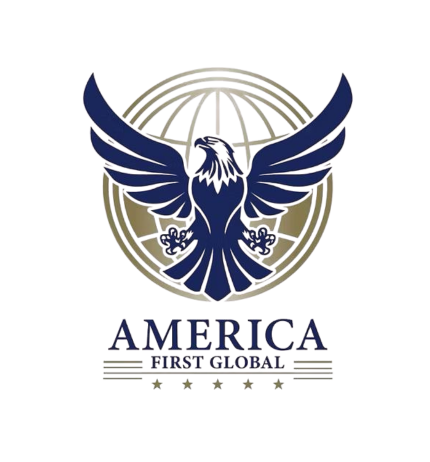The Gaza Peace Agreement: Opening Doors for Strategic U.S. Investment in the Middle East
- America First Global

- Oct 10
- 4 min read
Updated: 4 days ago
The historic peace agreement reached between Israel and Hamas marks more than the end of a devastating two-year conflict. It represents a fundamental shift in the Middle East's economic landscape and creates unprecedented opportunities for American investment to reshape the region's future.
President Trump's 20-point peace framework, which brought both parties to the table and resulted in a ceasefire that took effect in mid-October, demonstrates what decisive American leadership can achieve. But beyond the immediate humanitarian relief—the return of hostages, the flow of aid, and the silencing of guns—this agreement opens a new chapter in economic diplomacy.
From Conflict to Capital: The Investment Imperative
The peace plan envisions a "Board of Peace" led by President Trump that will manage investments and economic development in Gaza, creating a structured pathway for American capital to enter a region that has been effectively closed to meaningful Western investment for nearly two decades. This is precisely the kind of strategic economic engagement that we believe will define 21st-century American influence.
The reconstruction of Gaza alone represents a multi-billion dollar opportunity. The territory's infrastructure—houses, roads, water and electricity systems—will require years of rebuilding, and American companies are uniquely positioned to lead this effort in collaboration with regional partners. But the implications extend far beyond Gaza's borders. This peace framework creates conditions for stability that can catalyze investment flows across the entire Middle East.
Regional Stability Equals Regional Opportunity
The Trump Declaration for Enduring Peace and Prosperity, signed by regional stakeholders, commits nations to implementing the agreement in a manner that ensures peace, security, stability, and opportunity for all peoples of the region. This multilateral commitment provides the foundation for sustainable economic partnerships.
When regional tensions ease, capital flows more freely. American businesses have long been hesitant to commit significant resources to Middle Eastern markets outside the Gulf states, citing security concerns and political instability. This peace agreement directly addresses those concerns. By establishing clear frameworks for governance, security, and economic development, it creates the predictable environment that large-scale American investment requires.
Infrastructure, Energy, and Technology: America's Competitive Edge
The Middle East's proximity to Europe, Africa, and Asia makes it a natural logistics and trade hub. American expertise in infrastructure development—ports, transportation networks, telecommunications—positions U.S. firms to capture significant market share in reconstruction and modernization efforts across the region.
Energy remains central to Middle Eastern economies, but the transition to renewable energy and advanced energy technologies offers American companies opportunities to lead. Solar energy potential in the region is virtually unlimited, and U.S. technology firms can provide the innovation necessary to harness it at scale.
Perhaps most importantly, the peace agreement creates space for technology sector growth. A stable Middle East can become a testing environment for American innovation in everything from agritech to fintech, cybersecurity to artificial intelligence. Young, educated populations throughout the region represent untapped human capital that American companies can partner with and invest in.
Countering Competitors Through Economic Engagement
Since its inception, America First Global has warned about the vacuum created by insufficient U.S. economic engagement in developing regions. China has steadily expanded its Belt and Road Initiative across the Middle East, securing influence through infrastructure investment. This peace agreement gives America the opportunity to reassert economic leadership in a region of critical strategic importance.
By deploying American capital now—during this window of opportunity when regional actors are committed to peace and stability—the United States can establish economic relationships that will endure for generations.
The Path Forward: Strategic Investment as Diplomacy
The Trump Declaration emphasizes that lasting peace emerges through cooperation and sustained dialogue, and that strengthening bonds among nations serves the enduring interests of regional and global peace and stability. This is economic diplomacy in action—the recognition that prosperity is a more powerful and lasting influence than military might alone.
America First Global stands ready to mobilize billions of dollars in American capital to support this vision. We will work with regional partners, international organizations, and the proposed Board of Peace, if asked, to identify high-impact investment opportunities that deliver returns for American stakeholders while fostering regional development.
The sectors we're targeting include infrastructure reconstruction, energy development and modernization, technology transfer and innovation hubs, healthcare and education systems, and agricultural technology and food security initiatives.

America First in the Expanding Middle East
Our philosophy has always been clear: prioritizing American interests creates benefits that extend to our partners. By ensuring that U.S. capital flows into the Middle East under terms favorable to American businesses and national interests, we create sustainable economic relationships that lift all participants.
President Trump has declared a new era where "the skies are calm, the guns are silent" and the region can "live in peace for all eternity". That peace must be built on economic foundations that give all parties a stake in stability. American investment can provide those foundations.
The peace agreement represents a beginning, not an end. The deal remains fragile and will require continued American engagement to keep it intact through subsequent phases. But that very reality underscores the importance of economic ties that bind nations together through mutual interest rather than merely through diplomatic agreements.
At America First Global, we see this historic moment for what it is: an opportunity to demonstrate that American economic leadership, when exercised with strategic intent and sustained commitment, can transform regions, strengthen alliances, and secure American interests for decades to come. The Middle East is ready for American investment. The question is whether American capital will seize this moment—or watch others fill the void once again.
We choose engagement. We choose investment. We choose to build the economic partnerships that will define the Middle East's future and cement America's role in shaping it.



Comments